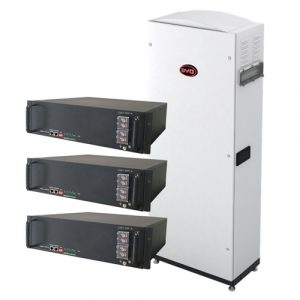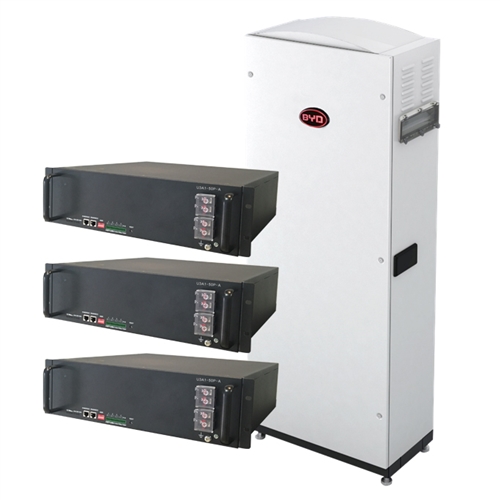Build Your Dream (BYD), the largest electric vehicle and storage battery manufacturer in China has intensified efforts to acquire a 25 percent of the Australian battery market after realizing a remarkable 8-10 percent share in its year one of operation in the Australian storage batteries market.
During a commissioning ceremony held at the Museum of Contemporary Art in Sydney, the giant manufacturer shared its vision for the Australian storage battery market even as it revamps its production to ensure a wider range of flexible, quality residential solutions and sets the pace for industry rivals like Tesla and LG Chem.
As a battery market pioneer in China, the BYD Company has recorded impressive success with its storage battery solutions in some of the European markets including Germany.
However in February 2017, the company showed interest in the Australian market which it considers as one of the rising marketplace for its patented B-Box array of modular, lithium-ion storage batteries.
Earlier this year, the company launched an upgraded version of its modular “solar batteries” for the Aussie market, which the company claims has higher usable energy as well as discharge power.
These battery modules come with a minimum capacity of 3.5kWh (up from 2.5kWh), and can be fully loaded to a maximum capacity of 14kWh. And when it comes to larger residential and small-sized commercial projects, the 14kWh battery boxes or loads can be “daisy chained” jointly in an array of three to deliver 42kWh.
On the vast commercial scale realm, battery packs categorized in the “same family” can deliver up to 300kWh of energy capacity.
Notably, BYD remains num about the battery prices, but we will be on the lookout for any updates for pricing of their new range.
It’s also worth noting that the BYD’s position at the fore of the industry’s vertical integration gives it a competitive edge in this space.
“The major benefit we have is that we control the supply chain, all the way from the lithium mine,” stated Julia Chen, BYD director of global sales, in a recent interview.
“Our (stationary) battery storage business can benefit from the huge platform provided by our BYD electric vehicle manufacturing operations division – both on technology, and cost,” she added.
In other words, while Tesla boasts about its “production hell” from gigafactories that are yet to start meeting the high demand for its storage batteries and vehicles, BYD sold over 108,000 EVs in China alone in 2017—and that was considered a low year. Chen notes that on average, seven new plug-in Electric Vehicle models are released in China annually.
Talk of static energy storage production capacity; BYD recently surpassed that of Tesla.
While BYD considers Tesla as its biggest rival, Chen said strengthening the Australian energy market to embrace battery storage has taken the efforts of all stakeholders in the industry.
“We consider that Tesla is also a pioneer in batteries,” Chen said in a recent an interview. “They have done a great job bring attention to the industry and in educating consumers about the technology,” she stated.
As if that isn’t enough, BYD hopes to take over a segment of the energy storage market with its new solution that is slightly distinct from Tesla’s Powerwall 2 whose capacity starts at 13kWh.
Using its small-sized storage batteries, BYD is looking to attract the rooftop solar households and businesses that are still teetering over the fence not sure if they should invest in battery storage, or feeling discouraged by the initial purchasing cost hence only interested in going solar with the smallest 3.5kWh or the 2.5kWh modules which the company offers.
The main advantage of this scenario is that Australian homes will be able to add more volume as the cost of solar and storage plunges and as they get to understand how to get the most from their solar investment.
According to Warwick Johnston of SunWiz, most Australian households consider installation of smaller battery banks as the best solar investment as compared to installing a bigger one, at least until their initial costs have dropped.
“We think of Australia as really one of the world’s leading emerging markets,” noted Chen, pointing to the country’s abundant sunshine and well-established solar industry as the main drivers of the market.
“And we see strong interest in battery storage.”

